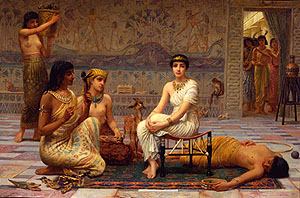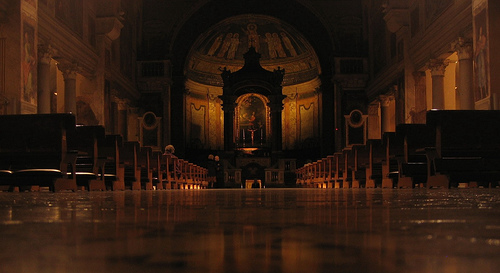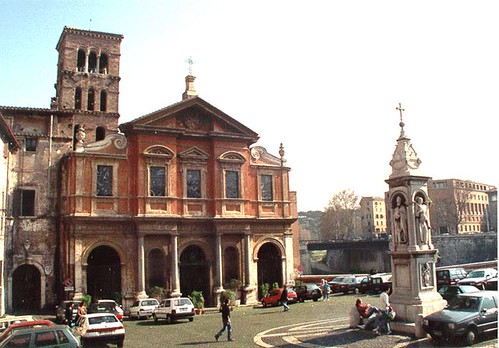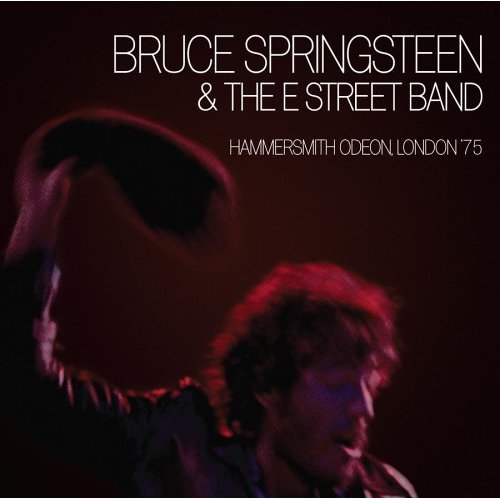The Dahesh Museum displays cursed art. Cursed, that is, by the Art Establishment. It consists of 19th century paintings and sculptures that are not "revolutionary," that for the most part have no political and social message, and that are figurative. The paintings' subjects are historical, mythological, and picturesque. The same could be said of many Renaissance works certified by the experts as masterpieces, but according to them, that's not what the 19th century was about. The only art that matters from the period, they say, is impressionist and post-impressionist. Everything else is naively pictorial and quaint: "academic" is the damning expression. This is what the impressionist darlings rebelled against and saved us from.
Joseph, Overseer of Pharaoh's Granaries
You will gather that I am rather fond of many of these so-called "academic" artists of the 19th century, which is why I visited the Dahesh Museum on a visit to New York last week.
Certainly, not everything in the Dahesh is great. The same could be said about the Metropolitan Museum or the Museum of Modern Art. But the Dahesh collection includes a number of vivid and impressive items, which display both first-rate craftsmanship and splendid imagination. Unfortunately for the reputation of the artists, it's not the "right" kind of imagination. We have had it tatooed on our brains that scenes of the ancient world, or a fantasy Middle East, are not to be taken seriously (if they're by 19th century artists, who should have known better).
Henri Lehmann's painting shown above uses a remarkable glowing impasto to suggest the jewels and silk of one of the kings. Jean Lecomte du Nouÿ's Night Scene Near Gezeh, Egypt is a richly evocative canvas showing an adobe-like building in deep shadow under a cobalt sky, the only accent an L-shaped , fiery sliver from somewhere within the building.
Two unusual pictures by Alma Tadema (the museum spells his name without a hyphen, so I will do the same here) are hung. One is the narrow, vertical The Staircase, its central figure -- a woman in Roman costume -- seen from the back, ascending. We are left to ponder what the context could be. Another contrasts with Alma Tadema's usual classical setting: Joseph displays the artist's quasi-time-travel realism, taking us this time to ancient Egypt. Edwin Long's Love's Labour Lost is another essay in exotic and erotic historicism. Realistic, no, but captivating.

Edwin Long, Love's Labour Lost

Rafaelle Monti, Night
According to the museum's web site, "the Dahesh Museum of Art's permanent collection originated with Dr. Dahesh (1909–1984), the pen name of Salim Moussa Achi, an influential Lebanese writer, philosopher, and connoisseur, in whose honor the Museum is named. Envisioning a premier art museum, he collected paintings, sculptures, drawings, prints, photographs, and books by academically trained artists of the 19th and 20th centuries. Friends brought Dr. Dahesh's collection from Beirut to America in 1976 and founded the museum in 1987. For the next few years, the collection was researched and conserved, a location was secured, and exhibitions were prepared, all before opening to the public in 1995."
Dr. Dahesh seems to have been a man who followed his own star, oblivious to the fashionable certainties of received opinion. Good on him. Assuming that Western civilization survives its present Time of Troubles, its artistic taste may eventually catch up with him.













